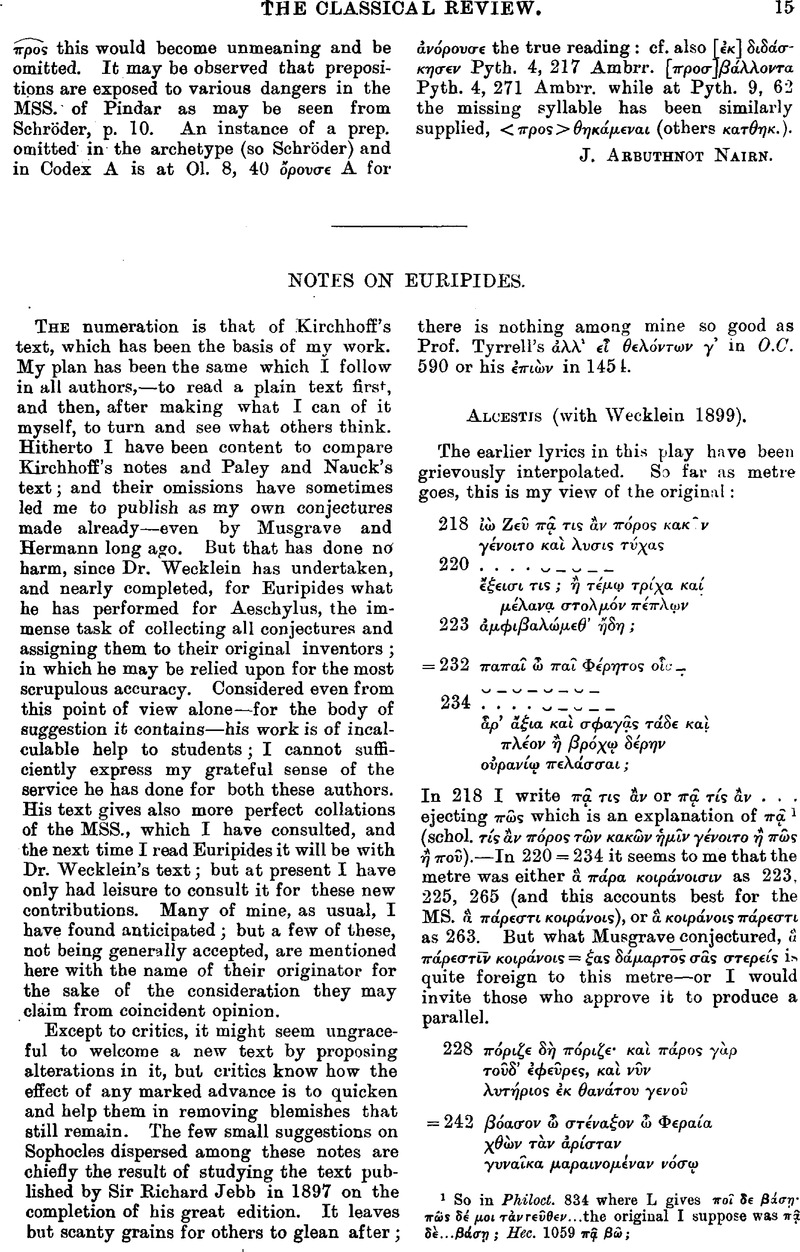No CrossRef data available.

page 15 note 1 So in Philoct. 834 where L gives ![]() …the original I suppose was
…the original I suppose was ![]() ; Hec. 1059 πᾷ β;
; Hec. 1059 πᾷ β;
page 16 note 1 Ithyphallic, of which the best example is the poem quoted by Ath. 253 c, Bergk PLG III p. 674
page 16 note 2 Auratus for ἦπου: the ɛἴ is certainly right, but one would expect rather ɛἴ πω, if not ɛἴπɛρ.
page 16 note 3 Gilbert for αἰτɛῑ, which Dr. Verrall takes to be the second person passive ‘thou art prayed’.
page 17 note 1 Add μαρμαρɛργατɛῑν, πρωτɛργτης.
page 18 note 1 See the Thesaurus. Liddell and Scott requires correction.
page 20 note 1 If κπɛφυκς is correct, ποισας will depend on δλς ɛμι or γɛνσομαι, implied from δλον. But I may suggest that κπɛφηνς would be natural for it to depend upon (as Pers. 788, Trach. 666, 1129, O. C. 804). It is a common enough confusion.
page 21 note 1 It was unworthy of Bergk to alter Pind. fr. 221. 3 ![]() .
.
page 22 note 1 This should be perhaps ![]() ‘and while I am at such pains to relieve (Xen. Cyr. vii. 1. 44) one of the gods (Apollo) of this troublesome concern,—that he should make my (determinations) of none effect! annul them, without even coming to first question,—for we are debarred from speech, with Zeus.’
‘and while I am at such pains to relieve (Xen. Cyr. vii. 1. 44) one of the gods (Apollo) of this troublesome concern,—that he should make my (determinations) of none effect! annul them, without even coming to first question,—for we are debarred from speech, with Zeus.’
page 24 note 1 So read for στρατɛɛιν (cf. for instance Muson. πɛρ κουρς in Stob. Flor. vi. 62). I should like to read this verb in the elever epigram of Sophocles on Euripides (Ath. 604 d) ![]() to τραν to be explanations of a corrupted reading ταρɛυ-or τɛρɛυ.
to τραν to be explanations of a corrupted reading ταρɛυ-or τɛρɛυ.
page 24 note 2 For the phrase, add Hyperides fr. 209 Blass.